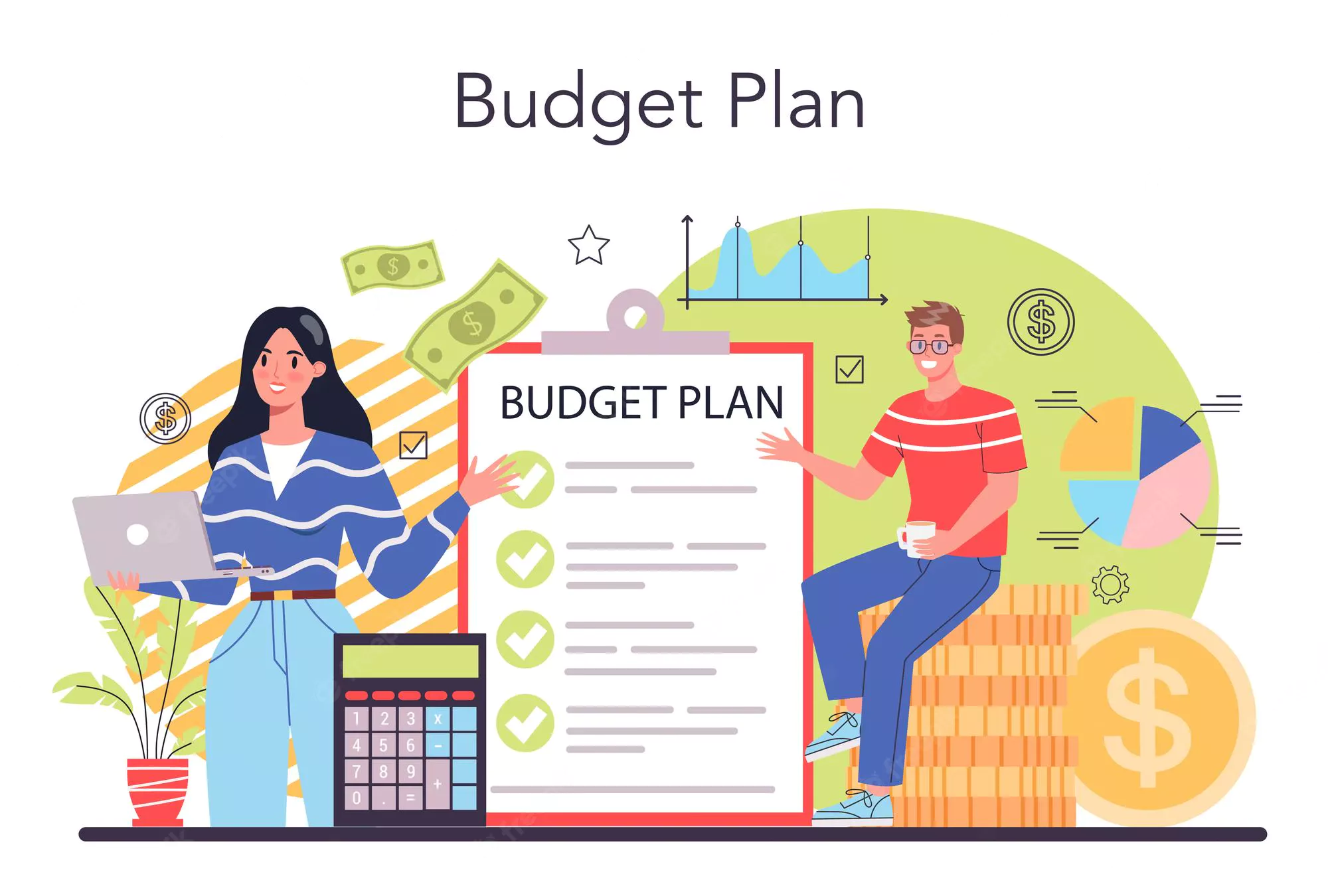An event budget is an itemized list of all estimated income and expenses associated with organizing an event. It includes details on various costs like venue, catering, entertainment, staffing, decorations, promotions, etc.

Creating an event budget is an important part of event planning as it:
- Helps determine if an event is financially viable
- Helps allocate resources efficiently
- Aids decision making on aspects like venue size, menu, etc.
- Allows tracking actual spending against estimated costs
Setting up an event budget
Several key steps are involved in creating an event budget:
Establish event basics
- Type of event (corporate, social etc.)
- Expected number of guests
- Event date, time and duration
- Event goals and requirements
This forms the framework for building the budget.
Estimate costs
Every expense item must be included in the following event cost categories:
Venue – space rental, power, lighting, furniture etc.
Catering – food, service staff, liquor
Entertainment – music and performers
Decor – flowers, centerpieces, signage
Staffing – ushers, hosts, servers, security
Promotions – invitations, website, advertising and PR
Transportation and parking
Permits, insurance and licenses
Miscellaneous – stationery, tech rentals, contingency fund
Historical data and vendor quotes help estimate these costs. Build in 10-15% buffer for incidentals.
Project event revenues
List all revenue sources like ticket sales, sponsorship, grants and merchandise sales. Don’t overlook minor sources too.
Conservative estimates bring prudence into projected income.
Maintaining the event budget
Revisit the event budget periodically leading up to the event and make necessary changes. Track actual expenses against planned budgets to make adjustments.
Careful money management through the planning process controls unnecessary spending.
Key benefits of an event budget
- Defines event success metrics through expected costs and revenues
- Allocates money smartly to key areas
- Avoids under or over spending risks
- Creates accountability for all event expenditures
- Helps secure sponsorships by showing tangible fund usage
In short, a well planned event budget is central to executing a balanced event program that aligns to organizational goals.
<hr>
Key Takeaway
An event budget itemizes all potential expenses, estimates expected revenues and outlines available resources for a planned event. It is integral to assessing the financial feasibility and guides prudent fiscal planning & execution.
<hr.>
Conclusion
Creating an event budget brings financial discipline into planning by associating required incomes and expenditures with event features and resources.
Updating a budget as planning progresses allows for flexibility in accommodating evolving needs and maintaining realistic targets. This leads to staging well-managed events that meet organizational objectives within defined budgets.
Meticulous upfront budgeting supported by continuous monitoring is fundamental for cost-effective events that create maximum value.
Frequently Asked Questions
Q: Why is an event budget important?
A: An event budget is crucial to determine if planned revenues can cover anticipated event costs and provide direction on managing expenses optimally. It is key to financial prudence.
Q: What are the key components of an event budget?
A: Key components are – lists of projected incomes & itemized expenses across vendor categories, financial buffers for incidentals, tracking tools to record actual spending.
Q: How can technology help create an event budget?
A: Event budgeting software tools help quickly build, update and maintain event budgets by line item tracking, vendor cost comparisons, proposal evaluations, budget vs actual analysis.
Q: When should one start working on an event budget?
A: Event budgeting should start as early as possible during planning, even before other activities as it defines affordability for event elements.
Q: Should event budgets have contingency funds?
A: Having a contingency fund equal to 10-15% of total planned spending is prudent for handling last minute changes or unforeseen requirements.
Q: Can event budgets be modified?
A: Event budgets are flexible guides that can be adjusted to evolving event scope and new expense requirements as planning progresses.
Q: What happens if event spends exceed the budget?
A: Excess spends could result in losses recovered by cutting other items, getting more sponsors or adjusting goals. Meticulous tracking helps avoid this scenario.
Q: Are there ways to reduce event costs?
A: Strategic planning, vendor negotiations, minimalist decor, disciplined spending as per criticality help reduce overall event costs.
Q: What is cost-to-attendee and how does it impact budgeting?
A: Cost-to-attendee refers to the per head cost borne by event organizers. Keeping it optimal ensures good attendance within budget.
Q: How does an accurate head count help event budgeting?
A: Accurate guest counts let planners estimate per head costs better and size venues, catering portions optimally.
Q: Should alcohol costs be significant in an event budget?
A: Alcohol can deeply impact hospitality costs. Keeping the bar budget reasonable as a % of total food costs helps balance priorities.
Q: How are vendor payments handled for events?
A: Vendor payments must align to contracts. Upfront deposits, post-event payments or installment-based payments work well.
Q: Why have buffer funds in the event budget?
A: Buffer funds allocate financial wiggle room to accommodate minor last-minute changes in an evolving event without busting budgets.
Q: Is event insurance necessary if there is a budget for it?
A: Event liability insurance is a mandatory budget item to cover accidents, cancellations etc. regardless of overall budget size.
Q: Can an elaborate event be executed on a small budget?
A: Careful planning around vendor negotiations, finding sponsors, minimizing unnecessary items can help execute most events on small budgets too.
Q: What are best ways to track actual event spending?
A: Event spend tracking is best done continuously by assigning owners to budget line items and using software tools to monitor real-time expenditure.
Q: Who is accountable for balances/overruns against an event budget?
A: The event planner/organizer remains accountable for balancing the overall event budget by optimizing spends or finding additional income sources.
Q: What are the best practices for creating event budgets?
A: Best practices include detailed cost estimates, 15% buffers, securing confirmed incomes upfront, continuous tracking of actual vs planned spends.